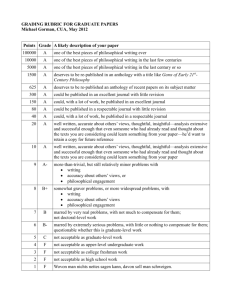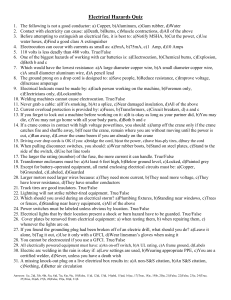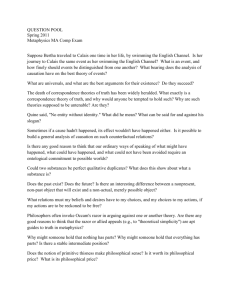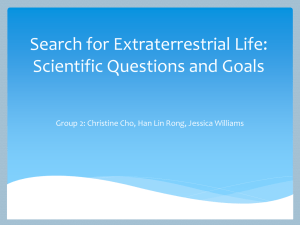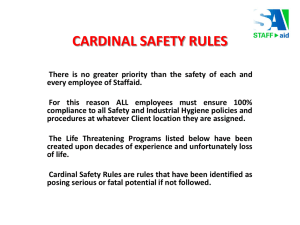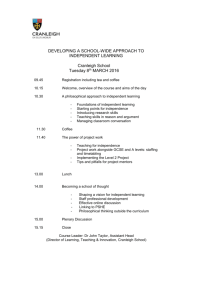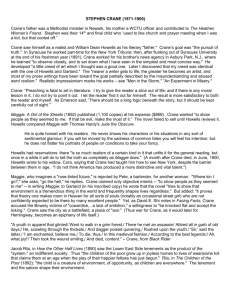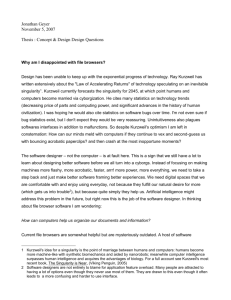PHIL 2340 final syllabus
advertisement
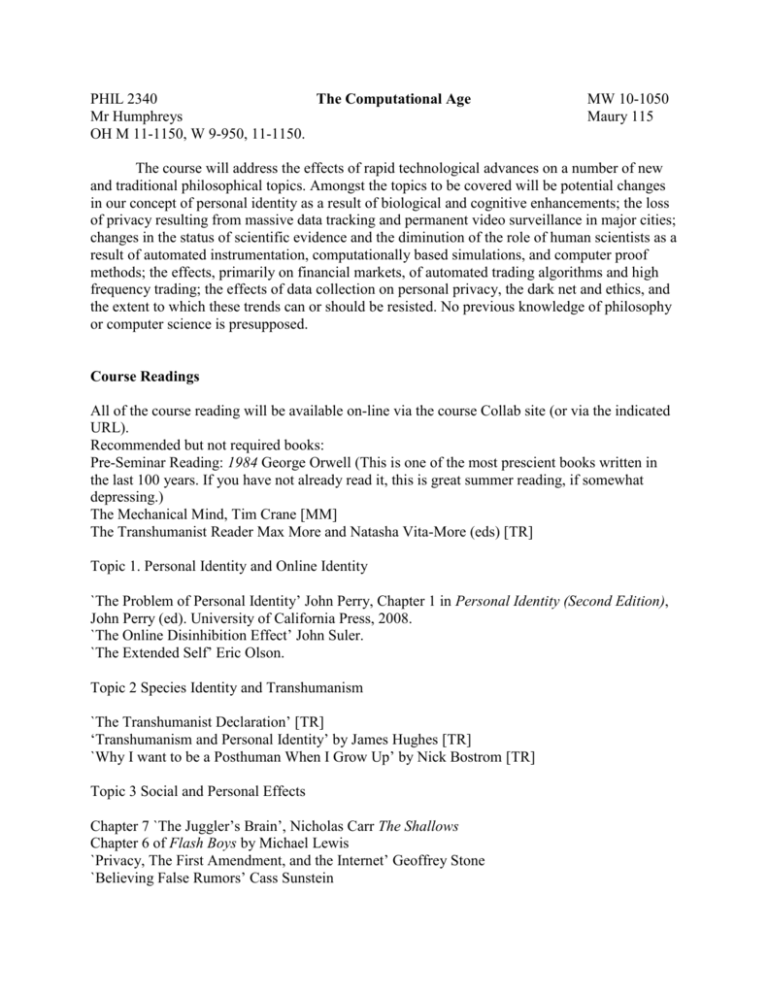
PHIL 2340 The Computational Age Mr Humphreys OH M 11-1150, W 9-950, 11-1150. MW 10-1050 Maury 115 The course will address the effects of rapid technological advances on a number of new and traditional philosophical topics. Amongst the topics to be covered will be potential changes in our concept of personal identity as a result of biological and cognitive enhancements; the loss of privacy resulting from massive data tracking and permanent video surveillance in major cities; changes in the status of scientific evidence and the diminution of the role of human scientists as a result of automated instrumentation, computationally based simulations, and computer proof methods; the effects, primarily on financial markets, of automated trading algorithms and high frequency trading; the effects of data collection on personal privacy, the dark net and ethics, and the extent to which these trends can or should be resisted. No previous knowledge of philosophy or computer science is presupposed. Course Readings All of the course reading will be available on-line via the course Collab site (or via the indicated URL). Recommended but not required books: Pre-Seminar Reading: 1984 George Orwell (This is one of the most prescient books written in the last 100 years. If you have not already read it, this is great summer reading, if somewhat depressing.) The Mechanical Mind, Tim Crane [MM] The Transhumanist Reader Max More and Natasha Vita-More (eds) [TR] Topic 1. Personal Identity and Online Identity `The Problem of Personal Identity’ John Perry, Chapter 1 in Personal Identity (Second Edition), John Perry (ed). University of California Press, 2008. `The Online Disinhibition Effect’ John Suler. `The Extended Self’ Eric Olson. Topic 2 Species Identity and Transhumanism `The Transhumanist Declaration’ [TR] ‘Transhumanism and Personal Identity’ by James Hughes [TR] `Why I want to be a Posthuman When I Grow Up’ by Nick Bostrom [TR] Topic 3 Social and Personal Effects Chapter 7 `The Juggler’s Brain’, Nicholas Carr The Shallows Chapter 6 of Flash Boys by Michael Lewis `Privacy, The First Amendment, and the Internet’ Geoffrey Stone `Believing False Rumors’ Cass Sunstein Topic 4. Computational Theories of Mind and Life Turing Machines and Classical AI, Crane [MM], pp. 83-114 `Minds, Brains and Programs', John Searle; Crane [MM], pp. 114-129. Connectionism and Neural Nets, Crane [MM], pp. 130-167 Topic 5 Moore’s Law, and Technological Progress Ray Kurzweil `The Law of Accelerating Returns’, http://www.kurzweilai.net/the-law-ofaccelerating-returns up through `The Exponential Growth of the Internet Revisited’ plus the section `A Clear and Future Danger’ David Chalmers `The Singularity: A Philosophical Analysis’, through section 8. Topic 6. Mind Uploading and Identity Sections `Downloading the Human Brain’ through `A Thought Experiment’ in Ray Kurzweil `The Law of Accelerating Returns’, http://www.kurzweilai.net/the-law-of-accelerating-returns op.cit David Chalmers `The Singularity: A Philosophical Analysis’, sections 9-11. `Mind-Uploading: A Philosophical Counter-Analysis’, Massimo Pigliucci. Topic 7 The Effects on Science, Mathematics, and the Humanities `Big Data, Critical Issues’, Danah Boyd `Computational Science and Its Effects’, Paul Humphreys, Chapter 9 in Science in the Context of Application. Martin Carrier and Alfred Nordmann (eds). Springer, 2011 `Computer Proofs’, Thomas Tymoczo. Course Requirements The requirements for the course are a) four short (750 word) papers that are due at approximately three week intervals during the semester (each is worth 12.5% of the total grade), b) one individual or group research project, due Wednesday December 2 on a topic of your choice (20% of the total grade), c) an in-class final examination on Monday December 14, 9-12 a.m. (30% of total grade). Regular attendance at lectures and discussion sections is expected. Attendance will be taken and each student is allowed three unexcused absences from lectures. Each further unexcused absence will result in a 2% reduction in the overall grade.




